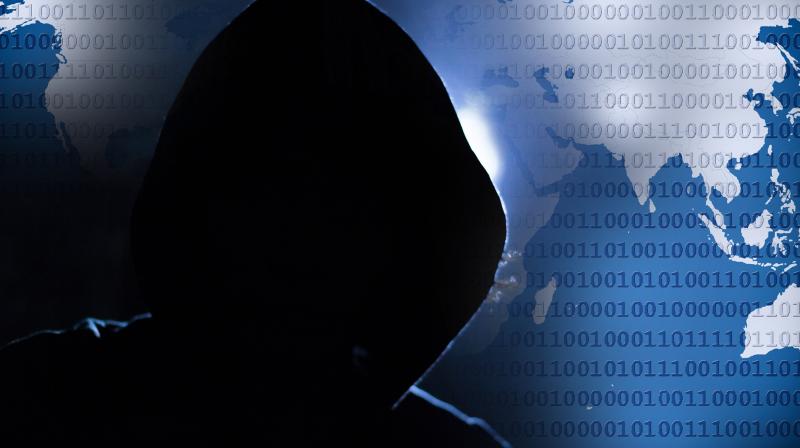WannaCry is still alive, 75,000 users affected in Q3 2018
The percentage has risen over the last year, demonstrating more than two thirds growth against Q3 2017.

One and a half years after its epidemic, WannaCry ransomware tops the list of the most widespread cryptor families and the ransomware has attacked 74,621 unique users worldwide. These attacks accounted for 28.72% of all users targeted by cryptors in Q3 2018. The percentage has risen over the last year, demonstrating more than two thirds growth against Q3 2017, when its share in cryptor attacks was 16.78%. This is just one of the main findings from Kaspersky Lab’s Q3 IT threat evolution report.
A series of cyberattacks with WannaCry cryptor occurred in May 2017 and is still considered to be one of the biggest ransomware epidemics in history. Even though Windows released a patch for its operating system to close the vulnerability exploited by EternalBlue 2 months prior to the start of the attacks, WannaCry still affected hundreds of thousands devices around the globe. As cryptors do, WannaCry turned files on victims’ computers into encrypted data and demanded ransom for decryption keys (created by threat actors to decipher the files and transform them back into the original data) making it impossible to operate the infected device.
The consequences of the WannaCry epidemic were devastating: as the victims were mainly organizations with networked systems – the work of businesses, factories and hospitals was paralyzed. Even though this case demonstrated the dangers cryptors pose, and most of PCs around the world have been updated to resist the EternalBlue exploit, the statistics show that criminals still try to exploit those computers that weren’t patched and there are still plenty of them around the globe.
Number of unique users attacked by cryptors, Q3 2018
Overall, Kaspersky Lab security solution protected 259,867 unique users from cryptors attacks, showing a substantial rise of 39% since Q2 2018, when the figure was 158,921. The growth was rapid yet steady, with a monthly observed increase in the number of users.
Most of the places in this rating are occupied by Asian countries. Bangladesh tops the list with 5.8%, followed by Uzbekistan (3.77%) and the newcomer Nepal (2.18%) in third. Pakistan (1.41%) came fourth, while India stands 5th (1.27%) and China (1.05%)
Note: Countries with relatively few Kaspersky Lab users (under 50,000) are excluded. Unique users whose computers were attacked by Trojan cryptors as a percentage of all unique users of Kaspersky Lab products in that country.
“The rising share of WannaCry attacks is another reminder that epidemics don’t end as fast as they start – there are always long-running consequences. In the case of cryptors, attacks can be so severe that it is necessary to take preventive measures and patch the device, rather than deal with encrypted files later,” said Fedor Sinitsyn, security researcher at Kaspersky Lab.
Other online threat statistics from the Q3 2018 report include:
-Kaspersky Lab solutions detected and repelled 947,027,517 malicious attacks from online resources located in around 200 countries and territories around the world (1.7% decrease against previous period)
-246,695,333 unique URLs were recognized as malicious by web antivirus components (29.9% decrease against previous period)
-Attempted infections by malware that aims to steal money via online access to bank accounts were registered on 305,315 user computers (41.5% growth against previous period)
-Kaspersky Lab’s file antivirus detected a total of 239,177,356 unique malicious and potentially unwanted objects (24.5% growth against previous period)
-Kaspersky Lab mobile security products also detected 1,305,015 malicious installation packages (25.2% decrease against previous period)
To reduce the risk of infection by WannaCry and other cryptors, users are advised to:
-Always update your operating system to eliminate recent vulnerabilities and use a robust security solution with updated databases. It is also important to use the security solution that has specialized technologies to protect your data from ransomware, as Kaspersky Lab’s solutions do. Even if the newest yet unknown malware does manage to sneak through, Kaspersky Lab’s System Watcher technology is able to block and roll back all malicious changes made on a device, including the encryption of files.
-If you have bad luck and all your files are encrypted with cryptomalware, it is not recommended to pay cybercriminals, as it encourages them to continue their dirty business and infect more people’s devices. It is better to find a decryptor on the Internet – some of them are available for free here: https://noransom.kaspersky.com/
-It is also important to always have fresh backup copies of your files to be able to replace them in case they are lost (e.g. due to malware or a broken device), and store them not only on the physical object but also in cloud storage for greater reliability (don’t forget to protect your cloud storage with strong hack-proof password!)
-If you’re a business, enhance your preferred third-party security solution with the newest version of the free Kaspersky Anti-Ransomware Tool.
-To protect the corporate environment, educate your employees and IT teams, keep sensitive data separate, restrict access, and always back up everything.
-Use a dedicated security solution, such as Kaspersky Endpoint Security for Business that is powered by behavior detection and able to roll back malicious actions. It should also include Vulnerability and Patch management features that automatically eliminates vulnerabilities and installs updates. This reduces the risk of vulnerabilities in popular software being used by cybercriminals.
-Last, but not least, remember that ransomware is a criminal offence. You shouldn’t pay. If you become a victim, report it to your local law enforcement agency.

